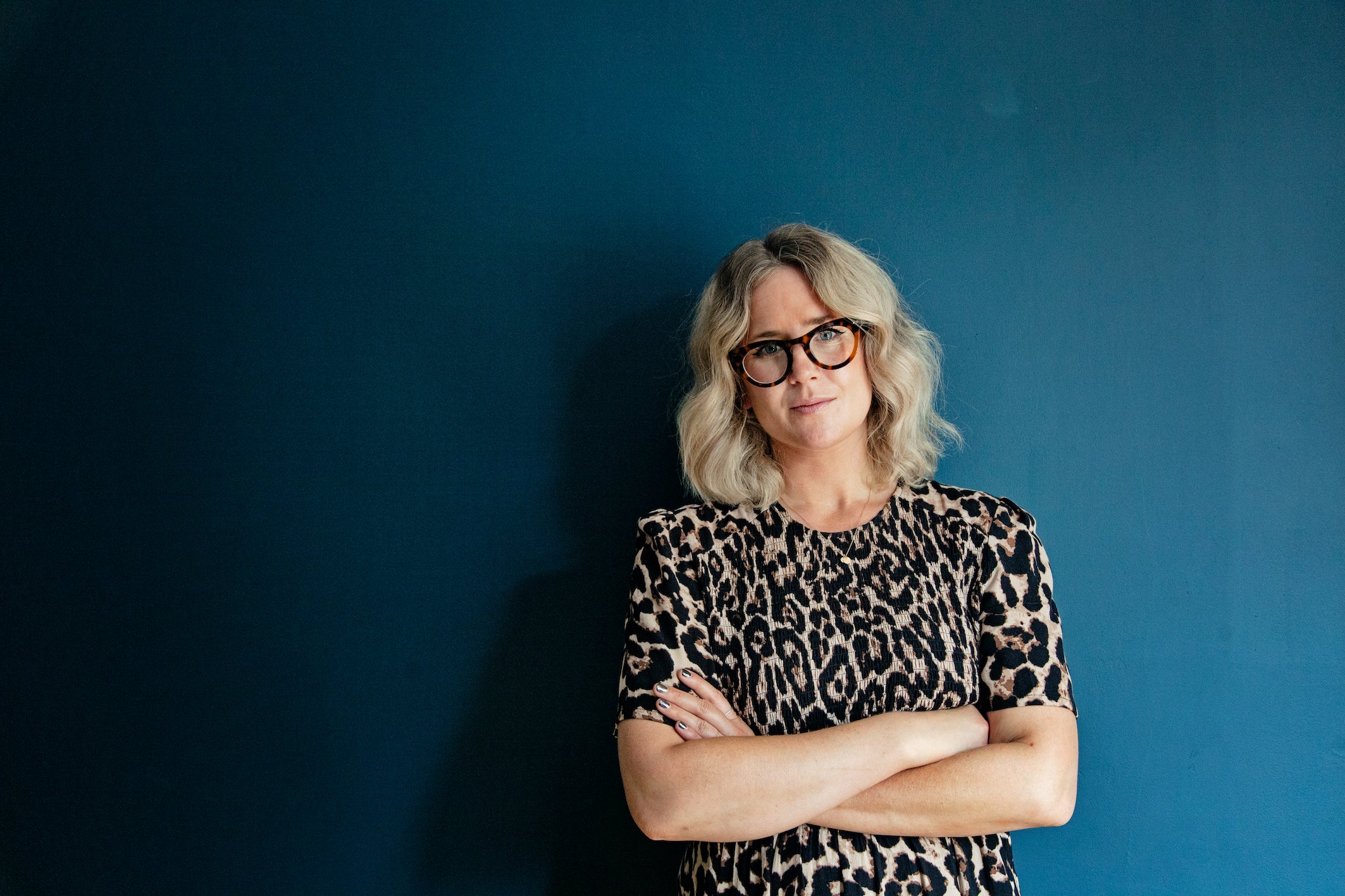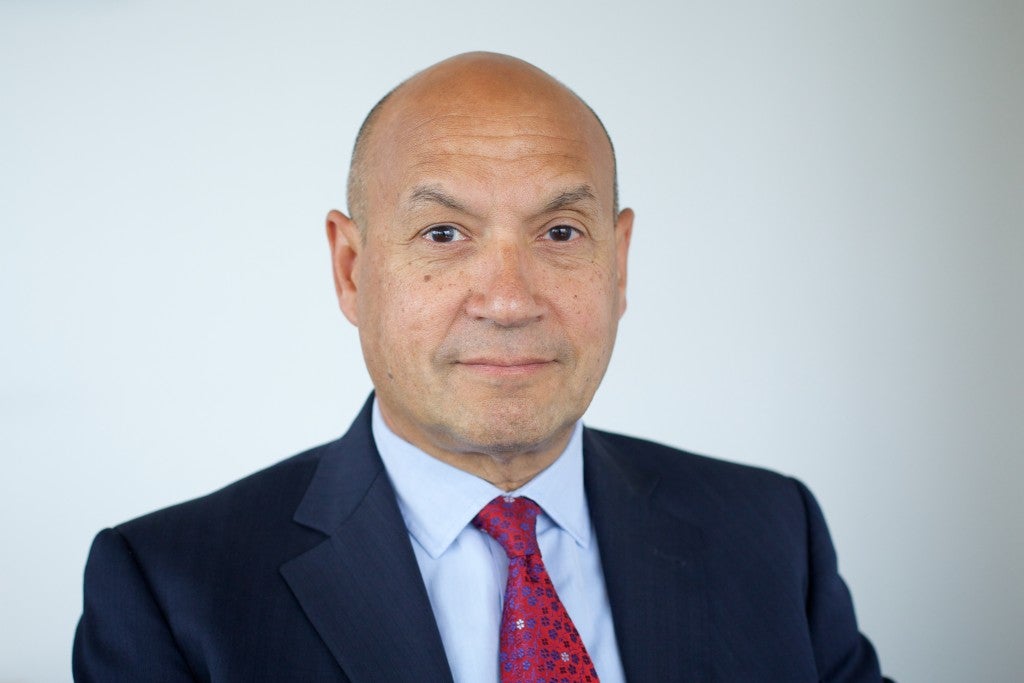Many parents are struggling with childcare costs – so how do we solve the crisis?
Parents in the UK pay the highest fees of any developed country while early years providers are shutting in their droves. Rebecca Goodman asks what can be done about an escalating problem

The cost of childcare was not something I’d given much thought to until I had my first baby in 2019 and calculated that if she were to go into nursery full time, we’d be left with a bill of around £17,000 a year.
Instead, she had three days a week for two years, which is what my now seven-month-old baby will do. Yet that will cost a total of £40,800 for two children.
In the UK parents pay the highest fees of any developed country, according to the OECD, and some pay 65 per cent of their wages in fees, according to research from Business in the Community, The Prince’s Responsible Business Network.
It is predominantly women who are affected, with 54,000 women every year losing their jobs because they’re pregnant, according to Pregnant then Screwed, a charity dedicated to ending the “motherhood penalty”.
For millions it’s more financially viable to reduce working hours or stop altogether than pay for childcare, and 38 per cent of women work part time, compared to 13 per cent of men, according to the Office for National Statistics.
Despite the facts, and a growing body of research showing how unsustainable the system is, little is being done by government
At the same time providers in the early years sector are struggling to survive. By 2024 they’re expected to see a fall of 8 per cent in real-terms funding, according to the Institute of Fiscal Studies (IFS), while 5,400 providers have shut down in the last 12 months, according to Ofsted.
The cost of living crisis, and inflation soaring to a 40-year high, has exacerbated the problem for parents and providers.
Yet, despite the facts, and a growing body of research showing how unsustainable the system is, little is being done by government.
The only solution floated by the Conservatives, which has now reportedly been scrapped, was to change ratios of staff to children. This was largely criticised for being both unsafe and not a real way for parents to save money or to help providers.
A Department for Education spokesperson told us: “We know that many households are facing financial pressures and we continue to review all options to improve the cost, choice and availability of high-quality childcare for working parents, which remains a priority for this government.
5,400
early years providers have shut in the last 12 months
“We have invested more than £20bn over the past five years to support families with the cost of childcare, and the number of places available in England has remained broadly stable since 2015, with thousands of parents benefitting from this support.”
Labour has made promises to shake up the system, potentially offering more free hours and pushing for childcare to be seen as infrastructure under the Levelling Up Bill, yet no specifics have been given yet. The Liberal Democrats have proposed expanding free childcare while raising the rates paid to providers.
The current system allows for most children in England to access 30 term-time hours per week of free childcare, provided their parents work at least 16 hours a week and earn less than £100,000, with equivalent schemes in the rest of the UK. But this isn’t until children turn three and most parents go back to work at nine months.
Before that age children are eligible for up to £2,000 a year through the tax-free childcare system. Yet that doesn’t come close to average fees. The average price of a part-time childcare place (25 hours) a week for a child aged under two in a nursery was £138.70, or £7,210 a year in 2022, according to the charity Coram.
So, what is the answer? We asked mother-of-three Ivana Poku and four leading voices in this area to give their solutions to the problem.

Ivana Poku, founder of Mumsjourney: ‘Parents should have the option of free childcare when their child turns one’
Ivana Poku, 38, is a mum of three boys. After having her twins, Mason and Henry, in 2016, she suffered severe postnatal depression.
The founder of blog Mumsjourney and author of Motherhood: The Unspoken, says she didn’t have family nearby as her husband Yaw, 46, was working long hours, and they couldn’t afford nursery costs, even one or two days a week.
The family relocated to Fife from London in 2022 and now pay £205.95 a month for an after-school club twice a week. In 2021 she had her third son, Yaw, and says sending him to nursery is out of the question because of the cost.
She says: “The system does not support parents and their mental health and it should be changed.
“Parents should not have to wait three years to get free childcare, especially those with mental health issues and/or no support system.
“They should have the option to get free childcare from when their child turns one. Alternatively, having significantly smaller fees would make a big difference too.
“In many countries, including Slovakia where I come from, people pay around £20 a month per child for the after-school club, about £2-3 per hour for a private nursery, and nothing for a state nursery from the age of one. It would be wonderful if the UK had similar options.
“I truly believe it would help reduce the cases of depression and anxiety in (new) parents.”

Anna Whitehouse (aka Mother Pukka): ‘Childcare and flexible working are different sides of the same coin’
Originally from Holland, Anna Whitehouse, broadcaster and founder of the Flex Appeal campaign, says she doesn’t understand why parents in the UK should pay what is equivalent to a second mortgage for nursery fees.
She says: “It’s astonishing we’re still talking about this. It’s not feasible and it does not work, childcare fees in Germany are capped at €150 a month yet we paid close to £2,000 for fees.
“Nursery fees should be capped and investment in childcare is needed; that’s how you fund it and childcare needs to be seen as infrastructure in the same way roads and schools are.”
As co-founder of the recently launched Work Your Way, a website matching flexible jobs and potential candidates, Whitehouse says: “The first solution to the crisis is flexible working, which we need to get fully behind.
“We need to stop listening to the likes of Jacob Rees-Mogg and others who don’t represent us. They’re not the ones waiting in an office for a boss to tell them they can leave at five to go and pick up their kids.
“Then we need to look at childcare as infrastructure. Until these two things change there will be no equality – right now it’s basically women being told, ‘We don’t want you to sit with us.’
“Childcare and flexible working are different sides of the same coin and there needs to be a complete mind shift as it costs nothing to change to flexible working.”

Mandu Reid, leader of the Women’s Equality Party: ‘We must give childcare the same status as primary school education’
Mandu Reid believes the answer to the childcare crisis is universal free childcare, which she argues would pay for itself through reductions in benefit payments and the increased taxes generated by more women rejoining the workforce.
She says: “To solve this crisis we must take an ambitious and radical approach, that means affording childcare the same status as primary school education.
“If we had properly funded, free universal childcare provision in the UK we would all benefit because it would transform our economy.
“It would help families cope with the cost of living crisis, and it would help tackle inequality by enabling women to return to work, thus closing the gender pay gap and allowing employers to benefit from the immense untapped talent and potential of millions of female workers.”
Funding of free universal childcare would come from reductions in benefits paid out and increased tax revenues.
“It’s a no-brainer, policy-wise, because it supports both equality and economic growth,” she says.

Neil Leitch, CEO of the Early Years Alliance: ‘Investment into the early years is an investment into society’
Funding and changing the perception of the early years sector are key areas that need to be urgently addressed, according to Neil Leitch, chief executive officer of the Early Years Alliance.
Leitch explains that while nurseries, pre-schools and childminders are all facing the same challenges as other sectors when it comes to surging inflation and soaring energy prices, they also have the added pressure of years of government underfunding.
He says: “I have lost count of the amount of research showing how crucial the early years are for children’s learning and development, as well as how an absence of early education impacts on their future life chances.
“We talk about how best to solve the childcare crisis, but if we have any chance of solving it at all, we must stop calling it a ‘childcare’ crisis – because what our sector provides is much more than simply childcare.
“Access to quality early years provision is a fundamental necessity and yet we still treat it as a luxury and talk of ‘paying for other people’s children to be looked after’.
“Once we recognise that investment into the early years is an investment into society, then maybe there will be a little more focus on quality and fewer ridiculous policy proposals, like relaxing – or even scrapping – ratios.”
“Let’s be clear: there is no quick fix – but if there is any chance of building a sector where quality, affordable care and early education is available to the children and families who need it, then we must start recognising the early years as a fundamental part of the education system.
“That means valuing the early years workforce as education professionals and providing realistic funding that allows settings to remain financially sustainable both now and in the long term.”

Stella Creasy, Labour MP for Walthamstow: ‘We must see childcare as infrastructure’
Childcare literally gets people, mainly women, back to work and is vital infrastructure in the same way as roads or public transport, says Stella Creasy.
Seeing it as infrastructure, and using this funding, could create a universal childcare offering, to kick in when most parents go back to work and not under the current system of three years old for most children.
She says: “Underfunding means that parents face sky-high bills and a lack of facilities, stopping 1.7 million women taking on more work, and costs the economy almost £30bn a year.
If childcare is seen as infrastructure, as other schools are, this would not only benefit the economy but it would also stop women having to sacrifice their careers or lose their jobs because they have young children, and the increase in productivity would pretty much pay for itself, Creasy says.
“It’s a win-win that would also finally give every family the chance to choose how they want to balance work and family life, not just the ones who can afford a nanny,” she adds.






Join our commenting forum
Join thought-provoking conversations, follow other Independent readers and see their replies
Comments